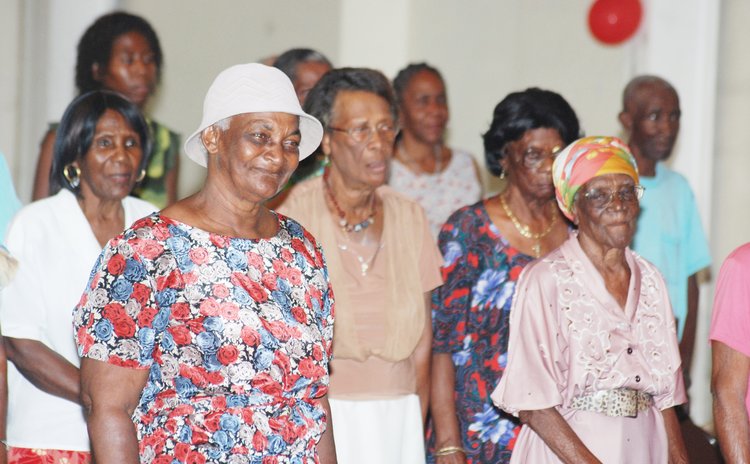Dominicans must be convinced that old age is far more than white hair and wrinkles

In September each year Dominica observes a Month of the Elderly. And 2019 is no exception. The Dominica Council on Ageing (DCOA) has presented a programme to celebrate ageing, to highlight its programme of activities and, we sincerely hope, to bring to the fore the serious issues affecting older persons in our society.
So, one month is more than enough time to talk about how shameful many of us should feel for treating older people the way that we do. And as we said in an earlier editorial, society must make a greater effort at treating older persons much better than it now does.
Abusing older persons is not only a Dominican abomination; it is a world-wide complaint. According to a report produced by the United Nations Fund for Population Activities (UNFPA) older persons complain about excessive abuse, usually by relatives who engage in often violent quarrels about properties and assets. Older persons are also neglected and do not feel that society and family members respect them.
"Old age is not a disease," said Maggie Kuhn. "It is strength and survivorship, triumph over all kinds of vicissitudes and disappointments, trials and illnesses".
But make no mistake that, mainly though the work of the DCOA over the years, there has been greater awareness of the issues affecting older persons in Dominica. Dominicans are now much more aware of the various forms of abuse of the elderly-sexual, physical, emotional and, most importantly, neglect and loneliness.
Nevertheless, the issue has always been that we must not just talk the talk about the abuse of the elderly, but crucially: what are we going to do about it. For instance, where are the laws that should criminalize the physical abuse of older persons; where is the outrage when older persons live alone in dilapidated shacks without electricity or running water, especially in our poor rural communities? The soul of a community should be defined by the way it treats it aged-poor.
According to Help Age International, older persons face a number of issues including chronic illness, limited access to health care and medication, poor housing, lack of economic security and livelihoods, social isolation, neglect and abuse. And the situation is getting worse as Dominica grapples with a dying economy caused by poor economic planning and execution, the impact of a struggling world economy and devastating effects of natural disasters such as Tropical Storm Erika (2015) and hurricanes David (1979) and Maria (2017).
Though statistics on the number of old persons who are below the poverty line in Dominica are not readily available, in developing countries generally older persons are among the poorest of the poor and the most vulnerable because governments have not made plans to take care of their old persons. Help Age estimates that worldwide more than 100 million older persons now live on less than US$1 a day.
Dominica's population is ageing because more and more persons are living longer lives. Note that the country has the distinction of having the highest number of centenarians per capita in the world. This is due to our natural way of living and, no doubt about it, the resilience of our older folk who walked a lot, ate a lot of natural foods and loved their neighbours as themselves, a lot.
Worldwide there are 800 million persons who are 60 years and over and that figure is expected to double by the year 2025 and reach one billion by 2050. In Dominica, the figure has been estimated at 13.5 percent of the population. We anticipate that the census data, whenever it is released, will shed some light on the actual status of Dominica's older persons.
But the issue goes deeper. Officials of the DCOA will tell you, in their moments of candor that their organisation is doing the best that it can, under trying financial and human resource conditions. Government is helping somewhat, as it must, but that help is woefully inadequate for such a crucially important organisation. The DCOA needs better offices with conference facilities, a care and recreational centre and more professionals committed to perform the crucial work of the organisation.
The DCOA itself must also move to face its challenges head-on; it must design and articulate its vision for the next decade; it must move beyond just organizing and implementing a few annual activities like the Month of the Elderly; it must now become the force that harnesses the experience and power of all senior citizens; it must become a beacon of hope for that generation and it must convince Dominicans that older persons are too valuable a national resource to be wasted like water flowing from an open pipe.
To quote Andre Maurois: "Old age is far more than white hair, wrinkles, the feeling that it is too late and the game finished, that the stage belongs to the rising generations. The true evil is not the weakening of the body, but the indifference of the soul".




